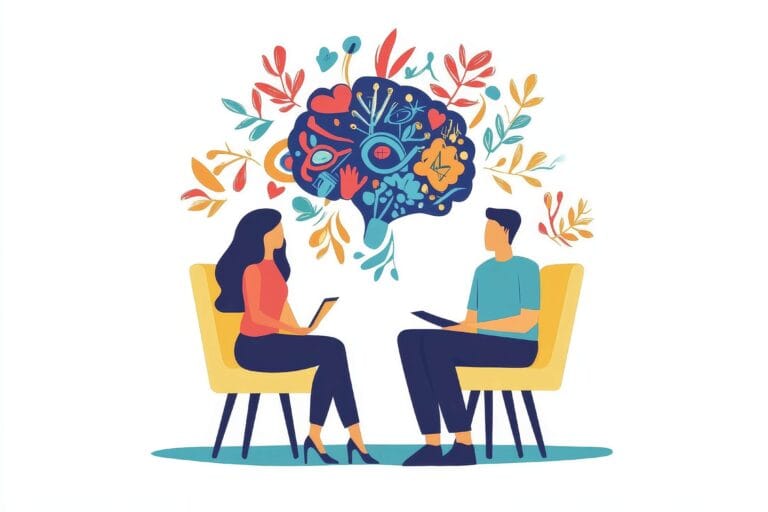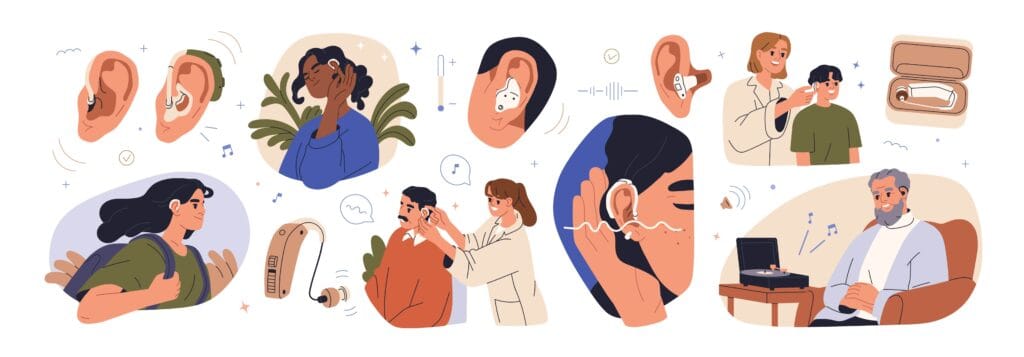When we talk about health, most of us think of exercises, eating well, sleeping enough, or maybe even taking time out for mindfulness or mental health breaks. But what if we told you that something as simple as hearing could influence your entire sense of wellbeing?
Surprised? Well, as we celebrate World Wellbeing Week (23-29 June 2025), we want to bring attention to an issue that is often overlooked but deeply impactful; the link between hearing loss and mental wellbeing.
At Hear4U, we believe hearing care is about far more than just the ears. It is about reconnecting with your world, your loved ones and most importantly yourselves.
Hearing Loss Is Not Just a Physical Issue
Hearing loss tends to creep in quietly. At first, you may not even notice it. You might find yourself asking people to repeat themselves, avoiding group conversations, or turning up the TV louder than usual. These subtle changes are often brushed off as harmless or just “part of getting older.”
But research continues to show that untreated hearing loss can have a profound impact on emotional health. Left unaddressed, it’s linked to increased risks of:
- Social withdrawal
- Anxiety and depression
- Cognitive decline
- Reduced self-esteem
- Chronic stress and fatigue
According to the RNID (Royal National Institute for Deaf People), people with hearing loss are more than twice as likely to experience mental health conditions like depression and anxiety.

How Hearing Loss Impacts Mental Wellbeing
Loneliness and Isolation
Hearing loss often affects people to withdraw from social interactions, not because they want to but because keeping up becomes exhausting. Simple conversations feel like hard work. Background noise becomes overwhelming. Over time, many stop attending social events or even answering phone calls.
This isolation can contribute to deep feelings of loneliness, which in itself is a serious risk factor for depression and anxiety. A study published in The Lancet found that loneliness and hearing loss are both a major contributor to cognitive decline, increasing the risk of dementia later in life.
Increased Cognitive Load and Mental Fatigue
Have you ever found yourself exhausted after a noisy dinner party, not because of the conversation, but because you were straining to hear?
This is known as listening fatigue, and it is very real issue for people with hearing loss. Your brain must work harder to fill in the blanks, decode muffled speech, and guess missing words. Over time, this constant strain can lead to:
- Mental exhaustion
- Reduced concentration
- Memory lapses
- Heightened stress levels
According to John Hopkins Medicine, untreated hearing loss puts extra stress on the brain, leaving fewer resources for memory and decision-making
Depression and Anxiety
When you feel disconnected from your surroundings, it is natural to experience emotional lows. Individuals with untreated hearing loss often describe feeling embarrassed, left out, or frustrated, especially in group settings.
This emotional toll can spiral into chronic depression or anxiety. In fact, a 2023 study by University of Manchester found that people with hearing loss were three times more likely to experience clinical depression than those without.
The emotional burden of constantly feeling misunderstood or “left out of the loop” can weigh heavily on anyone’s wellbeing.
Loss of Confidence and Identity
Many people don’t realise how central communication is to our sense of self. When hearing loss makes it harder to engage with friends, work colleagues, or family, people often begin to lose confidence in themselves.
You might start to question whether you are “keeping up” or feel embarrassed about asking others to speak louder or slower. Over time, this can lead to avoidance behaviours and shrinking sense of social identity.
What Science Says About Hearing Loss, Dementia, and Emotional Health
The link between hearing loss and dementia has also gained significant attention over the last few years. The Lancet Commission on dementia prevention named hearing loss as the single largest modifiable risk factor for cognitive decline. Wearing hearing aids, the report suggested, could reduce the risk of dementia by up to 9% in some populations.
So, not only does supporting your hearing improve emotional wellbeing, but it also plays a role in long-term brain health.
Better Hearing = Better Quality of Life
Let’s keep it real, hearing well changes everything. It’s not just about volume; it is about connection. When you hear clearly, you’re not guessing your way through conversations. You’re in them.
You can:
- Laugh with friends without nodding along awkwardly
- Feel like yourself again in social spaces
- Give your brain a breather, no more constant strain to keep up
- Feel included, understood, and seen
- Go about your day with more ease and independence
From the sound of your loved one’s voice to the birdsong outside your window, these aren’t just noises. They’re moments. And we’re here to help you stay present for all of them.

The Modern Solution for Today’s Hearing Aids Are Game Changers
One reason many people delay getting help is fear. They associate hearing aids with old, bulky devices. But that couldn’t be further from the truth today.
At Hear4U, we offer some of the most advanced, discreet, and comfortable hearing aids available. These include features like:
- Bluetooth streaming for calls and music
- Background noise suppression
- Rechargeable batteries
- Sleek, nearly invisible designs
Plus, we offer ongoing aftercare, cleaning support, and even free home visits to make things easier.
How to Take Action This World Wellbeing Week
If you or someone you care about is showing signs of hearing difficulty, World Wellbeing Week is the perfect time to take the first step. You don’t need a GP referral, and our hearing tests are completely free and without obligation.
Here’s what to do:
Book a free hearing test at your nearest Hear4U clinic and get your results on the same day. Visit our clinic, talk to our friendly audiologists about your wellbeing and lifestyle and explore treatment options if at all you or your loved ones need.
We’re here to listen to your ears and to your story. Our team of experts make sure to go beyond hearing tests because at Hear4U, we offer:
- Advice tailored to consider your emotional wellbeing
- Compassionate aftercare and long-term support
- Access to community events, wellness tips, and family-friendly resources
- Guidance on hearing protection and future-proofing your hearing health
Because good hearing isn’t a luxury, it’s part of living fully.
Let’s Talk Wellbeing
This 23rd June to 29th June, let’s shift the conversation. Mental health matters and so does hearing!
By taking care of your ears, you are taking care of your brain, your heart, and your sense of connection. You’re making space for laughter, music, quiet moments, and all the beautiful things that sound brings into our lives.
Whether you’re 25 years old or 75 years old, better hearing equals better quality of life.
Ready to Hear the World Again?
Call us at or visit our website to book a free hearing test near you.
Join us this World Wellbeing Week 2025 in choosing a better, more connected, more vibrant life.
Because wellbeing starts with listening, literally!
